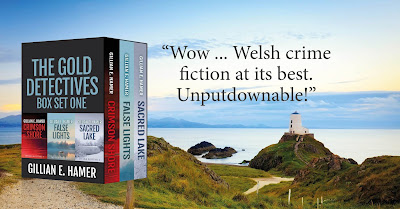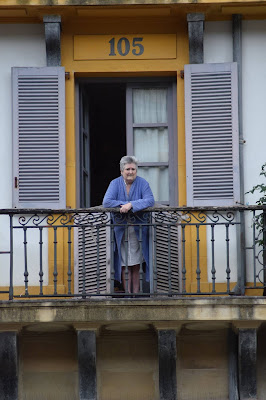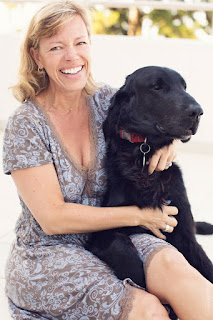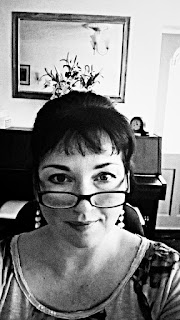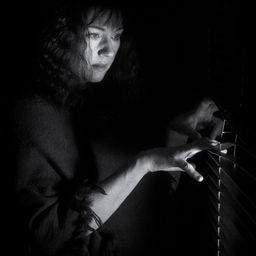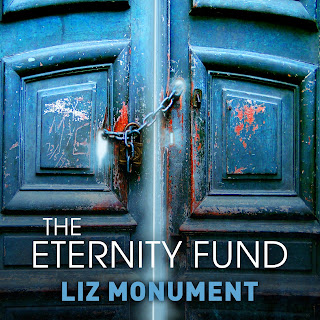Can't get started or stalling when you do?
Whether experienced or novice, most writers suffer from the dreaded writers' block at some time.
And it's not really surprising it happens. Writing is hard work. It's a craft as well as an art and it has to be learned, practised and improved.
Writing takes time and effort. The only way to learn it is by doing it. And the only way to practise is by doing it. And the only way to improve is by doing it. Yes, it's great when the creative juices flow, but most of the time it's a case of turning up and persevering.
Its major symptom is procrastination which in turn leads to frustration, and in the most serious cases self-loathing and despair - where that voice inside tells you that you were a fool to ever think you could write - and you are tempted to give up completely.
Beating the block
But please, if you're affected by writers' block, don't give up. There is hope. It is possible to recover and become both creative and productive once more.
And because it can be due to different reasons it follows there are different remedies. So let's take them one by one:
Author fatigue - first of all congratulations for having got started and persisted up to this point. You've most likely been writing intensively - a do-not-disturb notice issued to friends and family - and every possible moment has been spent at your desk. You may well have been enthused, full of ideas and completely committed to your project. But then the well runs dry. Suddenly - or gradually - enthusiasm wanes, focus is lost and ideas dry up. It's time for a complete break, time to replenish.
So, get out of your writing space and re-engage with the world. The natural world is a particularly effective remedy. Going for a walk, run or cycle outdoors really does blow the claggy cobwebs away. And as you focus on the physical, your mind can go off on its own to process, refresh and reboot.
Social distractions are good too. A meal, a drink, and a catch up with the important people in your life also give the creative department of your brain some much-needed downtime. It seems as if switching your focus lets your mind declutter and work on things in the background - including your latest writing project - with no active input from you.
And don't forget to spoil yourself a bit too - take a nap or a nice long bath - or even READ, yes, lose yourself in a good book. It's amazing how after some time away you'll find renewed enthusiasm for the work-in-progress.
Lack of commitment - your writing can sometimes stall because the project you're working on doesn't excite you or seems pointless. In which case walk away. But it may be that even although you're enjoying the piece you're working on, you're still finding it hard to do, or to justify the time spent on it. This is where deadlines come in handy. Competitions are a great way of imposing a deadline on your project and will also ensure you give your writing your best shot. Or, if you share the intended date for the publication/circulation/reading of your story, article, poetry collection - or whatever - with your readers, that will also help you focus your efforts.
Lack of experience - the only remedy here is: get some experience. Yes, you need to be brave. Starting something new can often be scary. But like all journeys, learning to write begins with small steps. You won't have a bestseller overnight - indeed most of us who write will never have a bestseller. But that's okay because you'll have so much fun just writing for the sake of it. So begin small and build from there. Write a short story or an article or a poem. Then do some more. Maybe seek out a local writers group or club you can join where you can share your work and get some support. Consider take a writing class or course, online or in the real world. You could even consider a residential course and experience the joy of such an intense and fully immersive experience. But whatever you decide, do seek out constructive feedback, take criticism on the chin (but not as a personal insult) and aim to improve.
Lack of confidence - this can be related to lack of experience but it affects established writers too. It can be related to disappointing feedback, a scathing review or the above affliction of author fatigue. But sometimes there is no obvious external cause. Sometimes it's that wee demon inside that likes to taunt us, tell us we're useless, asks us who we're trying to kid.
If you doubt yourself because of some negative criticism of your writing, take a bit of time to get over the hurt and then go back and interrogate the remarks made. More often than not there will be a grain (or more) of truth in that criticism and, also more often than not, you'll see a way to improve as a result. Equally, if you decide that no, the criticism is unjustified then put it aside and move on. Don't let one person's opinion stop you doing something you love.
And don't let the wee demon stop you either. Put it back in its box and turn the key. Then get back to doing the thing that gives you so much pleasure and excitement. Because there's nothing like the exhilaration of being in the zone, of seeing where the story - your story - is going to take you. And if one other person - besides you - also gets pleasure from reading it then it's doubly worthwhile.
And finally - Lack of inspiration - you want to write but you've no idea what to write. This is where writing exercises come in handy. So let me leave you with a few:
· Take the first sentence of chapter six in the last novel you read and write a 500, 1000 (or more) word story with it as your starting point.
· Get a photo of a person in e.g. a magazine advert (not someone famous or who you know) and write about them - their dilemma, or their life story, their job, their crime, their secret...
· As for the prompt above but use a picture of a place.
· Write about the first house you lived in, or the first film you saw, the first book you read - say what it meant to you and why.
· Choose something from the natural world - e.g. a starling, a river, an oak tree, or an object - e.g.paperweight, teddy, photo. Or choose an action - e.g. swimming, climbing, driving. Or choose an emotion - e.g. anger, sorrow, joy. And let that choice be your starting point for a short story, novel, poem or opinion piece.
So what are you waiting for? Go on kick the block aside and get writing!
Anne writes contemporary women's fiction. She has published
two novels so far Change of Life and Displacement and her third novel Settlement - a sequel to Displacement - will be out at
the end of August.
Anne's novels have been described as thoughtful, grown-up fiction where the main characters are older but no
wiser and feature characters who face challenges that involve love, loss
and some of life's biggest questions.
Anne is a Scot, living in the land of her birth. She's a
retired teacher and when she's not writing, she's a compulsive crossworder, yoga practitioner,
avid reader, keen walker and gardener. She also loves spending time with
friends and family - especially her two grandchildren.
Anne has travelled all over the world and her visits to the Middle East
in particular have inspired her most recent writing.
She can be a bit of a subversive old bat, but she tries to maintain a
kind heart.
Website: www.annestormont.co.uk
Twitter: @writeanne














